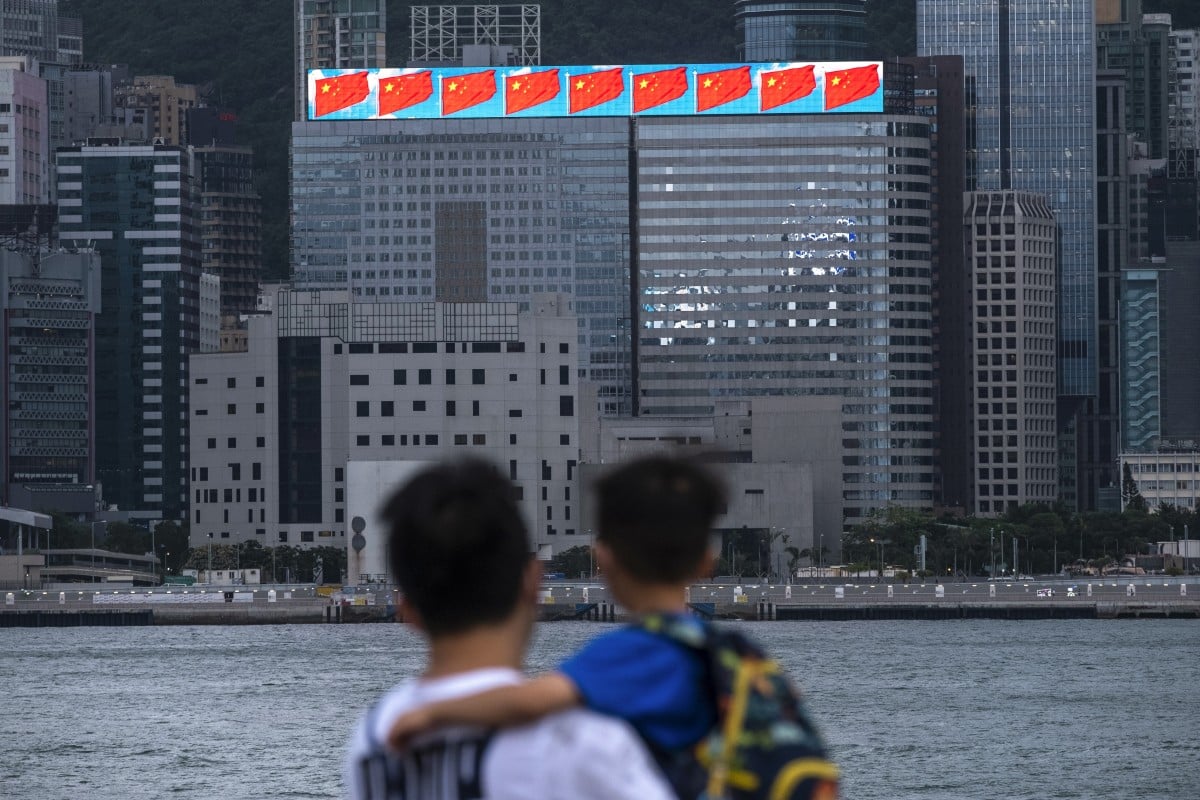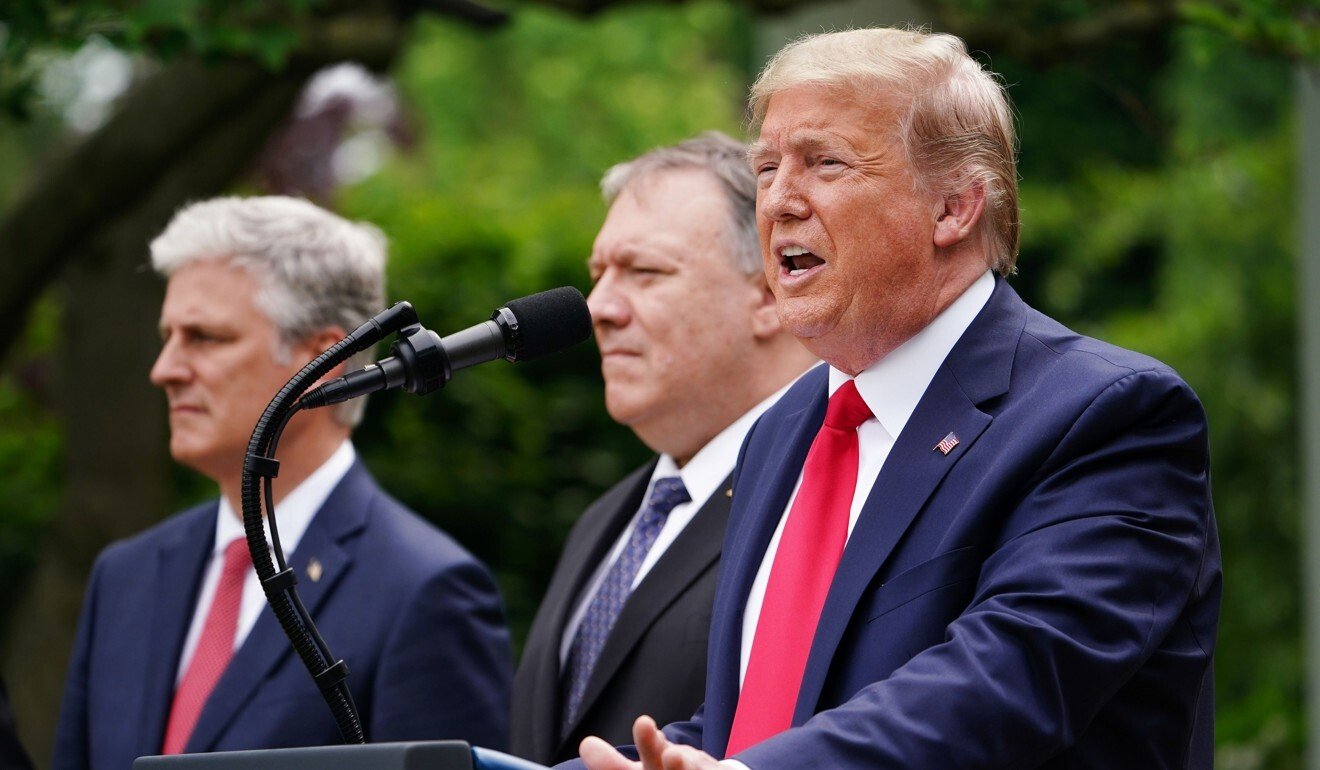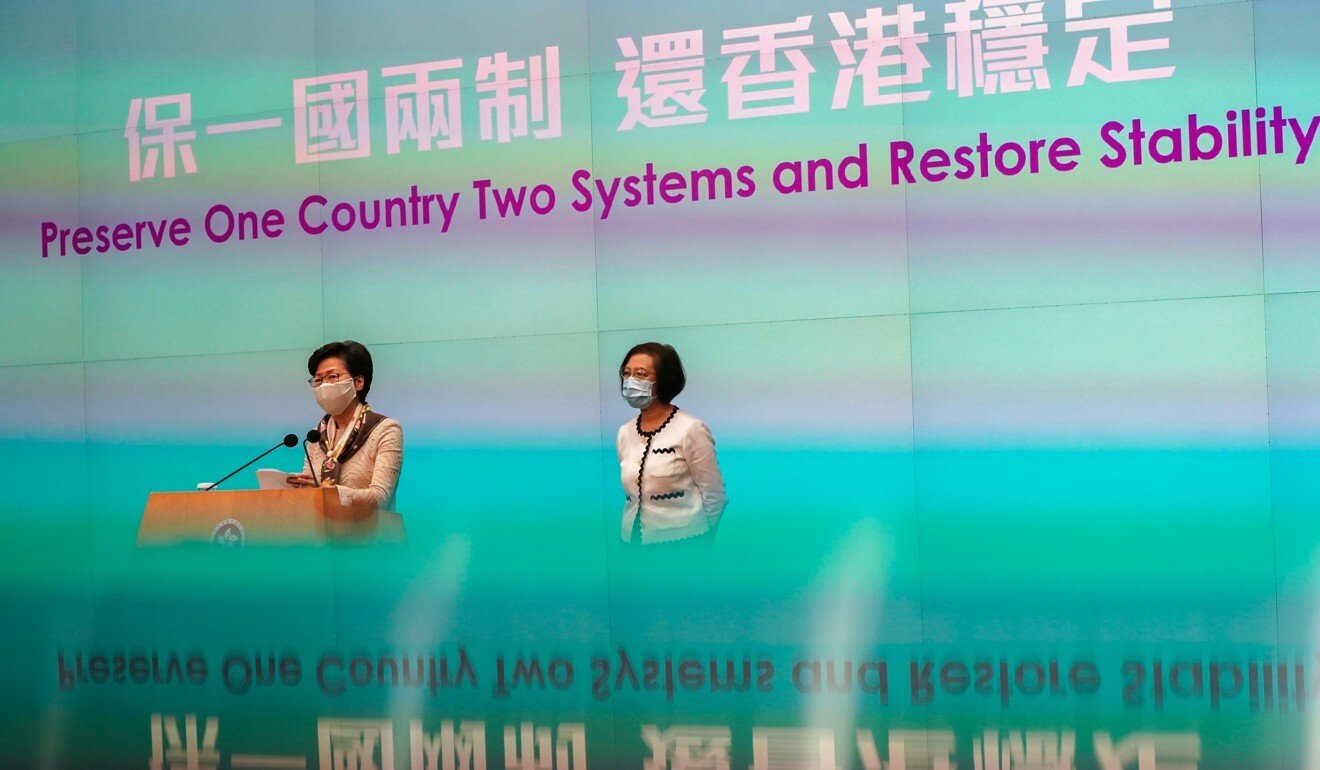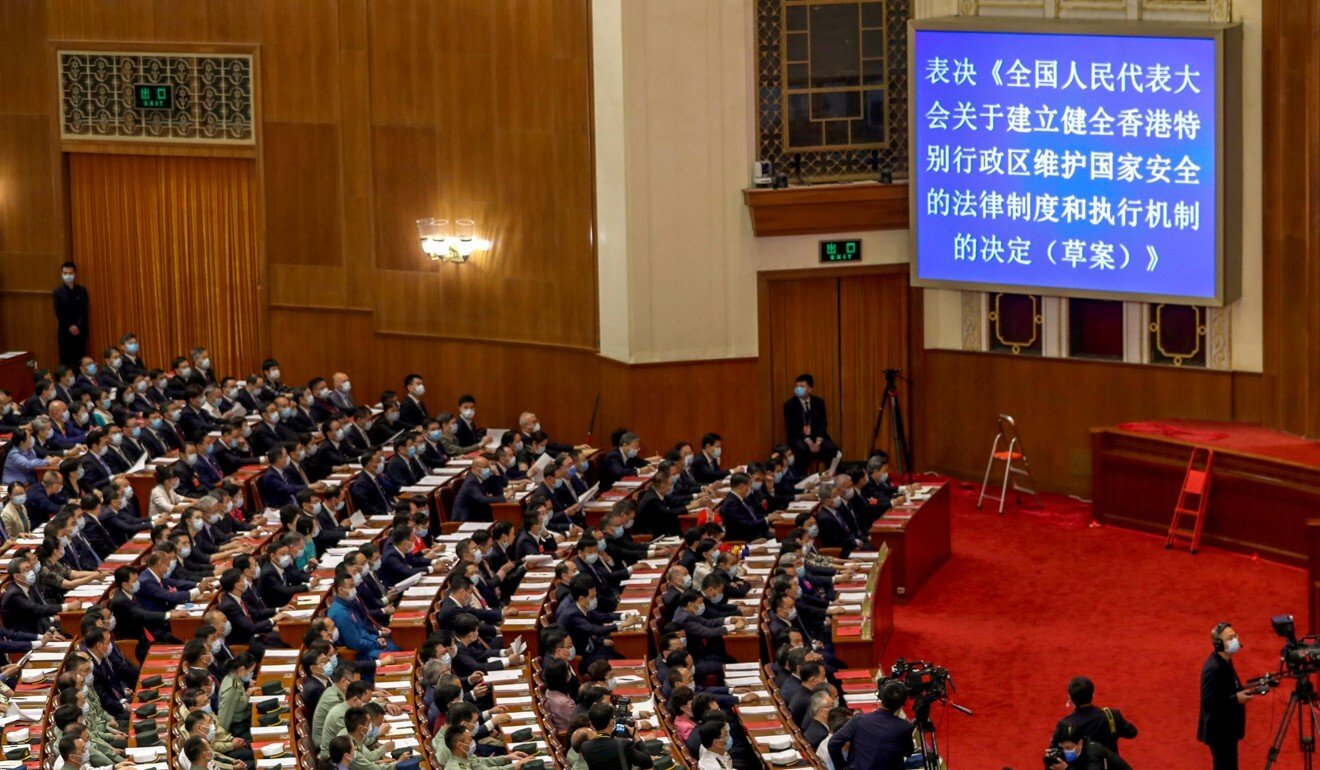 ‘They value very much their own national security, but are biased in viewing ours’, chief executive says in defending new national security law But questions about specifics of Beijing-imposed legislation, including whether Tiananmen vigils will continue in the future, go unanswered
‘They value very much their own national security, but are biased in viewing ours’, chief executive says in defending new national security law But questions about specifics of Beijing-imposed legislation, including whether Tiananmen vigils will continue in the future, go unanswered
A planned security law for Hong Kong has sparked concerns about issues including freedom of speech among some residents.
Hong Kong’s leader has slammed the United States for applying a “double standard”, pointing to the tough approach it has taken at recent protests in defence of its own security while attacking the national security law Beijing is now drafting for Hong Kong.
Chief Executive Carrie Lam Cheng Yuet-ngor hit back at the US on Tuesday as President Donald Trump, who on Saturday said his government would move to eliminate special policy exemptions granted to the city, vowed to end violent protests across the country sparked by the death of a black man in police custody.

US President Donald Trump (right), who last week threatened sanctions over Hong Kong’s perceived lack of autonomy, on Tuesday called for strong action against US rioters. Photo: AFP
“For some countries that have had a high-profile response and claimed they will take action, I can only describe them as upholding double standards,” Lam said, speaking ahead of the weekly Executive Council meeting on Tuesday morning. “They value very much their own national security, but are biased in viewing ours.”
Lam said the “double standards” were widely known, adding: “There are riots in the United States and we see how local governments reacted. And then in Hong Kong, when we had similar riots, we saw what position they adopted.”
There are riots in the United States and we see how local governments reacted. And then in Hong Kong, when we had similar riots, we saw what position they adoptedHong Kong Chief Executive Carrie Lam
Protests have erupted across the US in the week since George Floyd died at the hands of a Minneapolis police officer, who used his knee to pin Floyd’s neck to the ground for nine minutes.
Some of the demonstrations have turned violent, prompting the activation of the National Guard – reserve components of the army – in some states. Trump has warned of serious criminal penalties for rioters.
Lam’s comments came in defence of Beijing’s controversial move to craft and pass a national security law for Hong Kong designed to “prevent, stop and punish” secession, subversion, terrorism and foreign interference in the city.
The move has sparked concerns over human rights and the city’s long-standing freedoms, and raised questions as to how a law drafted by the mainland can be smoothly adopted to Hong Kong’s common law system.

Hong Kong Chief Executive Carrie Lam (left) defends Beijing’s planned national security law for the city on June 2. Photo: Robert Ng
After US Secretary of State Mike Pompeo last week concluded the city was “no longer autonomous” from the mainland, Trump said the government would take action to revoke Hong Kong’s preferential treatment as a separate customs and travel territory from the rest of China.
The US State Department’s review of the city’s autonomy was initiated last November with Trump’s signing of the Human Rights and Democracy Act, a move hailed by some opposition lawmakers and activists in Hong Kong.
On Tuesday, Lam again pointed to foreign pressure in reiterating the need for Beijing to safeguard national security.
She said the city was facing increasing security issues, saying “residents are living in fear. Some ask whether Hong Kong is still a city with the rule of law, or whether it is rule of fear.”

China’s National People’s Congress plans to promulgate a national security law for Hong Kong. Photo: Xinhua
Citing the late Chinese leader Deng Xiaoping’s quote that “there are some things Hong Kong can’t solve without the central government”, Lam said the time for Beijing to step in had arrived, and appealed for understanding from the public.
Referring to Beijing’s repeated assurances that the law will not affect the city’s autonomy and judicial independence, she added: “I find these principles and clarifications very reassuring, but of course, one has to wait for the draft legislation before you will be truly convinced that the law has complied with each and every of those principles.”
When pushed to address specific legal principles and the content of the new law, Lam again said she was unable to comment as the draft legislation was not yet available.
Questions she declined to answer included whether future June 4 vigils to commemorate the Tiananmen Square crackdown might be banned under the new law, and whether people would still be allowed to chant the frequent vigil slogan “end one-party dictatorship”.
No comments:
Post a Comment